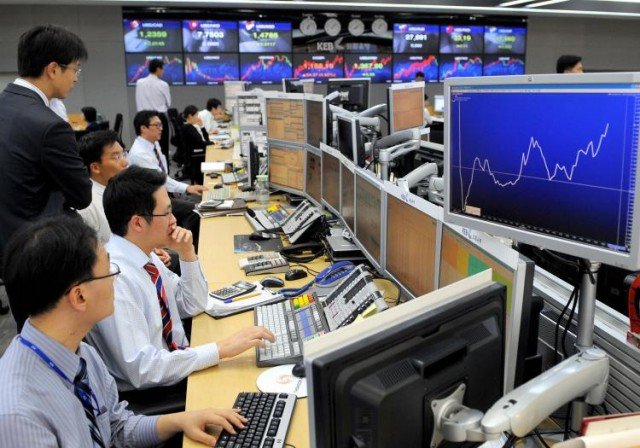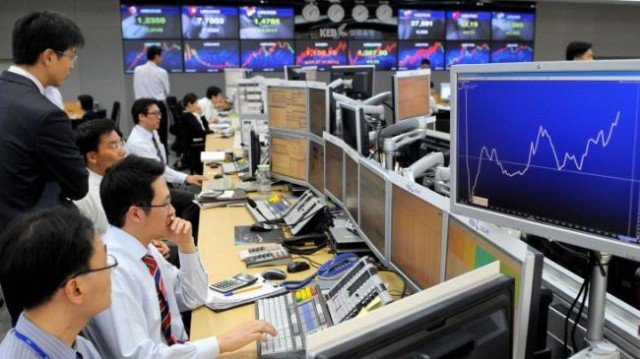South Korea’s economy growth rate hits two-year high in Q1 2013
South Korea’s economy growth rate hit a two-year high in the first quarter of 2013, boosted by a rebound in construction, investment and exports.
The economy grew by 0.9% in the January to March quarter from the Q4 2012, the central bank’s estimates showed.
The data is likely to help allay fears over the health of the Korean economy.
Earlier this year, the government cut its growth forecast for the current year amid a slowdown in exports.
However, the latest data showed a 3.2% quarter-on-quarter growth in exports during the period.

South Korea’s economy growth rate hit a two-year high in the first quarter of 2013, boosted by a rebound in construction, investment and exports
That compares with a 1.2% drop in the previous quarter.
South Korea’s exports, which account for almost half of its overall output, have been hit by slowing demand in key markets such as the US and the eurozone.
Demand in the eurozone has been hurt by the bloc’s ongoing sovereign debt crisis, while the US economic recovery has also been fragile.
Some analysts warned that despite the positive data, exports continue to be fragile as conditions in those markets have not improved substantially.
“I think it’s hard to say that the economy is turning around as export growth completely halted,” said Jun Min-Kyoo, an economist at Korea Investment and Securities.
“Companies are still panicking about poor exports.”
There have also been fears over the impact movements in the currency markets may have on Korean exports.
The South Korean won has risen by nearly 10% against the US dollar since May, making its exports more expensive to foreign buyers.
Meanwhile, there has been a sharp decline in the Japanese yen, which has dipped almost 20% against the US dollar since November 2012, triggered by an aggressive monetary policy stance by the new Japanese government.
There have been fears that because Japan and South Korea compete in similar markets, Korean goods may lose out as a result of the currency moves and that such developments may also hurt South Korea’s overall growth.
However, analysts said the latest data indicated that the moves had not had a significant effect on the sector.
“Exports improved even though the yen was depreciating, suggesting that there hasn’t been any major impact on growth yet,” said Kong Dong-Pak, an analyst at Hanwha Securities.
As a result, policymakers have been taking measures to boost domestic consumption in an attempt to offset the decline in foreign sales and sustain growth.
Last week, the government unveiled a 17.3 trillion won ($15.3 billion) stimulus plan.
It said the funds would be used to help small and medium-sized exporters, create jobs, boost a stagnant property market and cover a shortfall in tax revenue.
The move is expected to help boost annual growth by 0.3 percentage point this year and create 40,000 jobs.
Analysts said that as the plan is implemented and starts to impact real growth, policymakers may revise their projections upwards.
“Once the government’s extra budget starts kicking in, it’s possible that the Bank of Korea could raise its 2013 growth forecast come July,” said Kong Dong-Pak of Hanwha Securities.

